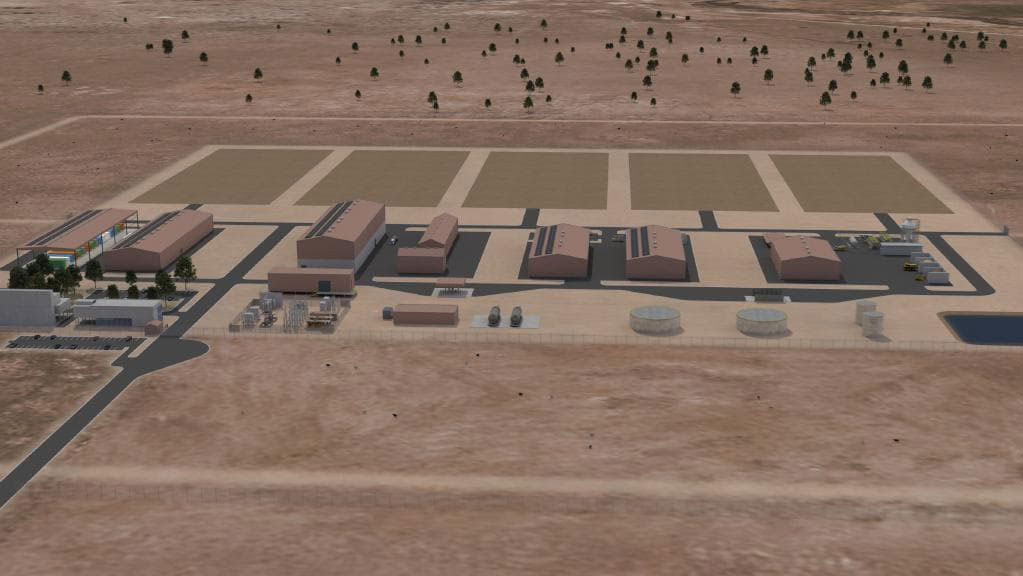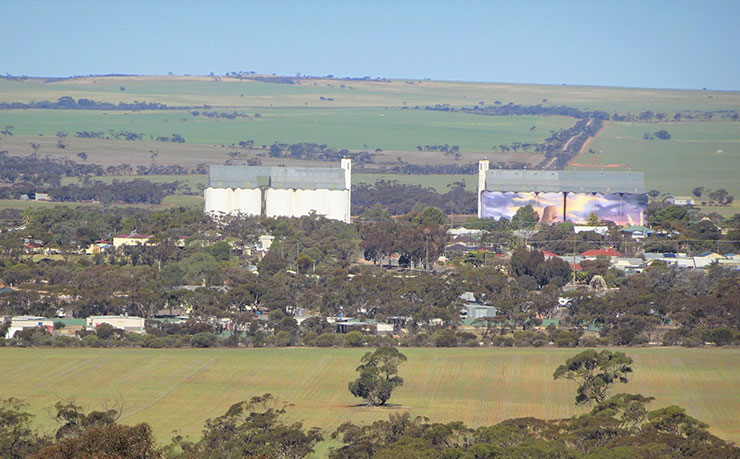Generally speaking, there’s good reasons and bad reasons to oppose government projects, whatever they may be. And then sometimes, the reason itself lacks reason. Geoff Russell weighs in on the recent decision to block the construction of a nuclear waste dump in South Australia.
I recently emailed the Federal Court asking for a link to the registry of cases so I could find out the relevant details of the Kimba Nuclear Waste Repository legal case which got coverage in most kinds of media a few days ago.
Someone with one of those oxymoron job titles, a ‘Client Services Officer’, replied: “Please provide a file number of your matter so the registry may further assist.”
If I had the bloody file number, I wouldn’t need to see the register.
I’ve dealt with the legal system before in my life, and promised myself to strenuously avoid it in future. I come out in a rash within 100 metres of a courtroom. But bugger it, sometimes you really need to read the actual decision rather than rely on reports.
Happily, a second client services officer responded to my second request for information with a link to the judgement; a good place to start.
The non-reasons for the decision
The ABC report was ambitiously titled: “Here’s what we know about the Kimba nuclear storage facility decision”. It reported that the area concerned had no native title but was a dryland wheat farm.
It’s not clear if the Barngarla people understand why they won the case. The ABC reported:
The Barngarla people have a sacred site for women near Kimba, which they fear a facility would destroy.
“The Seven Sisters Dreaming is through that area,” Barngarla woman Dawn Taylor said.
The Guardian reported:
“It’s about listening to the First Nations people,” the corporation’s chair, Jason Bilney, said after the ruling.”
“The lesson is about truth-telling. You can go on about the Voice, but it’s about listening to the First Nations people and here we are today and we prevailed and we won.”
This case definitely wasn’t about truth-telling. The truth is that radioactive minerals litter the Barngarla lands and this waste repository poses no risk whatsoever to any mythical beings or stories; both being impervious to radiation. And of course, all of the above gratuitous quotes were irrelevant to the actual legal case. You can read the full judgement here.

But the Barngarla probably don’t care about why they won, only that they won; for now. With the legal system, it’s never really over, even when it’s over, or sometimes even long after it’s over. All that really happens is that each new round siphons up any remaining cash left in any associated bank account. In this case, it was public money vs public money (or perhaps pro-bono… see below).
The Barngarla (numbering about 200) have spent about $5.4 million on legal fees over the past four years; not for this case, but in total. This is the cost of managing the Native Title legal infrastructure, a remarkable system whereby money is funnelled from Government, through Aboriginal Corporations, and into Law Firms; where all large sums of money rightly reside.
The Barngarla are just one of many such Aboriginal Corporations. They have been assiduously cultivated by anti-nuclear environment groups who would otherwise have to litter city malls with cake stalls to raise funds for this kind of anti-nuclear court case.
I don’t know if native title legal money was used in this case, or if the lawyers did it pro-bono. It’s an interesting issue. If it was pro-bono, then you could ask if the legal firm in question has ever done that level of pro-bono work for a party that didn’t give them a million or so in other work every year?
The actual reason for the decision
The ABC report then went on to give the actual reason for the legal outcome; which, thankfully, had nothing whatever to do with the Seven Sisters Dreaming. Why do I say ‘thankfully’? I’ll get to that later.
The actual reason, as reported by the ABC was almost as bad.
It was that there was “apprehended bias in the decision-making process” by former federal minister Keith Pitt in selecting the site. Quoting Justice Charlesworth (as quoted by the ABC) he could be seen to have a “foreclosed mind” on the issue “simply because his statements strongly conveyed the impression that his mind was made up”.
I’m looking forward to the Voice referendum result being overturned because of the apprehended bias of Indigenous affairs minister Linda Burney, to name but one.
I don’t know which is scarier, a court which makes decision on the basis of mythology, be it Aboriginal, Christian or Greek, or a court which makes decisions on the basis of non-mythological irrelevancies.
Many decision makers embark on a deliberative process mandated by some law or procedural process despite having extremely strong views on what they expect. That’s just human nature. We all have our biases and preconceived notions going into an investigation, and some of them can be really strong. Important processes are designed very carefully to avoid being corrupted by both actual bias and perceived bias. And a bloody good thing too.

What the ABC report didn’t say was that “All remaining grounds of review are rejected”. The Barngarla lawyers threw everything including the kitchen sink at this case, and Judge Charlesworth rejected them all; except the “apprehended bias”.
Allowing biases to corrupt the process is clearly wrong, but having them? That’s both unavoidable, and probably good. Having a bias helps you scrutinise arguments more strongly on the other side of any question. But, yes, it can cause you to allow junk arguments to move you when you love the outcome.
Here’s a few of what I think are good reasons for overturning a decision:
- The mandated process wasn’t followed properly. This could be grounds, but only if the sloppiness of the process was considered so bad that the outcome might be influenced. Here’s an example. I have 3 quotes for identical offshore wind farms: $6,500 million (Danish), $4,500 million (Chinese), and $7,000 million (Swedish). Suppose I round the numbers to the nearest billion and pick the lowest. That’s really sloppy, but it makes no difference to the decision provided I was required to pick the lowest bid, all other things being equal. Of much more interest would be the process I went through in checking they really were identical. In the months leading up to receiving the quotes, I might have been very strongly biased towards the Chinese and been quite open about it. But it would be bloody silly to overthrow the decision to go with the Chinese because of my very real bias towards them. If my bias impacts the result, then clearly there is a problem. But if the result would have been the same regardless of my bias, then overthrowing it is simply silly.
- The mandated process was flawed in a way that likely impacted the decision. What if the process was flawed but the decision would have been, in this case, the same? That’s a great reason to get the flaws fixed for next time the process is run, but not to overthrow the decision. But you may not be able to anticipate what the amended process would deliver, in which case, starting over with the amended process is probably the only way forward.
- The process was fine, but flawed evidence was allowed to screw up the decision. Suppose you have a process for siting a nuclear waste repository and somebody believes, falsely, that radiation from that repository would wipe out kangaroos, or ants, or some plant, or give children cancer. If that false belief was given standing, then the decision would be flawed.
Note that the fear of radiation can be very real, but out of all proportion to the risk. Consider for example the radioactive water in tanks at Fukushima in Japan. Elsewhere in Japan, and elsewhere around the planet, people pay good money to bath in hot springs far more radioactive than that Fukushima water. All over the world for centuries people have bathed in such radioactive waters as a health spa. The claims of benefits are as nutty as the claims of harm, other than via the placebo and nocebo effects.
We understand what to do about the fear of flying. Don’t fly or get help. But one thing we don’t allow is for people with a fear of flying to screw it up for everybody else.
That’s a pretty good principle to live by when deciding what weight we should allocate to irrational fears and sincerely believed mythology.
Donate To New Matilda
New Matilda is a small, independent media outlet. We survive through reader contributions, and never losing a lawsuit. If you got something from this article, giving something back helps us to continue speaking truth to power. Every little bit counts.




